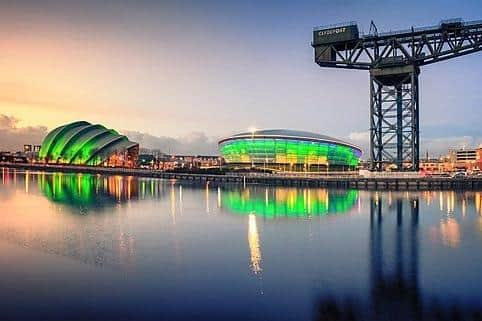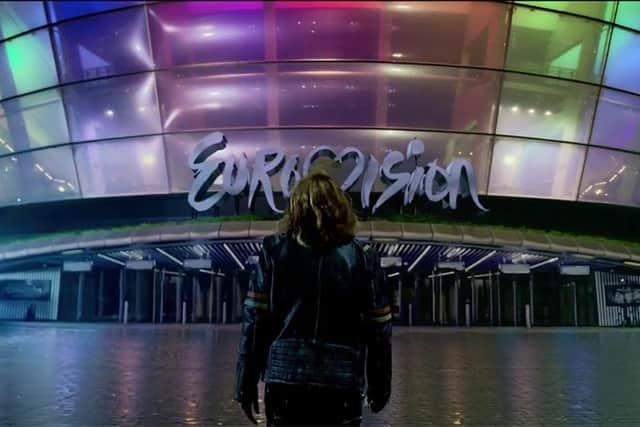Eurovision Song Contest: Glasgow's credentials have left it in prime position to be the host city – Brian Ferguson
The race to become the next host city – officially launched this week with the confirmation that the event will be staged in the UK instead of Ukraine – has triggered levels of excitement and anticipation unlike anything since Glasgow secured the right to host the Commonwealth Games.
Winning that host city competition in 2007 was the catalyst for something of a new golden age.
Advertisement
Hide AdAdvertisement
Hide AdBy the time the tournament was staged in 2014, Glasgow was able to boast an array of new and overhauled venues for sporting and cultural events.


The biggest of those, the Ovo Hydro, which opened less than a year before the Commonwealth Games, has been a true gamechanger for the city’s live music scene, has propelled the transformation of the Finnieston area of Glasgow into one of the city’s most fashionable neighbourhoods, and has ensured that the city now boasts the second-busiest music venue in the world, after Madison Square Garden in New York.
It has also helped attract some of the biggest events in the business to Glasgow for the first time, including the MTV Europe Music Awards, the BBC Sports Personality of the Year Awards and the Mobo Awards.
But these would be surpassed if Glasgow can clinch Eurovision, an event seen by more than 160 million television viewers when it was staged in the Italian city of Turin in May.


Taken in isolation, the range of facilities at the Scottish Event Campus, including the Ovo Hydro and Armadillo venues, would appear to give Glasgow as good a chance as its strongest rivals, including Liverpool, Manchester and London.
But the undoubted success of the COP26 climate summit staged last November, when the global spotlight was on Glasgow like never before, must be in the city’s favour given the involvement of the BBC, which just happens to have a headquarters building on the Clyde.
Glasgow has a long list of other credentials to host Eurovision, not least the fact it was named the UK’s first Unesco City of Music in 2008 and can trace its modern-day renaissance to its reign as one of the first cities to be crowned a European capital of culture.
The huge expansion of the hospitality and tourism sectors on the waterfront, and its good public transport links, can only enhance the city’s prospects further.
Advertisement
Hide AdAdvertisement
Hide AdBut the most tantalising prospect for Glasgow must be the thought of the musical carnival that would unfold in the city if it was to secure the event, a recipe for an extended party if ever there was one.
As ever with Eurovision, the politics are intriguing. The messages of support and solidarity from Scotland to the people of Ukraine could not have been stronger since the outbreak of war earlier this year.
The emotional and memorable scenes at the World Cup play-off match at Hampden cannot have harmed Glasgow’s prospect of landing Eurovision.
The prospect of an independence referendum in Scotland adds an extra layer of intrigue to the decision-making process being overseen by the European Broadcasting Union and the BBC.
For now, it’s game on for Glasgow’s Eurovision dreams.
Comments
Want to join the conversation? Please or to comment on this article.

